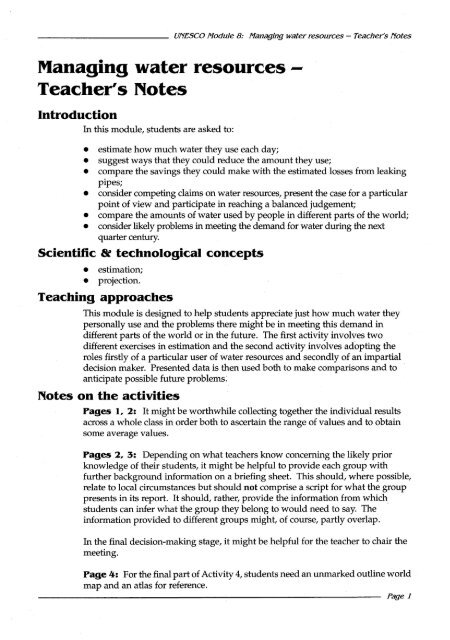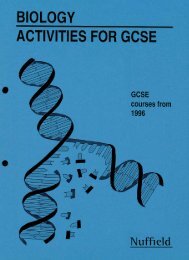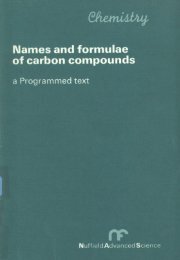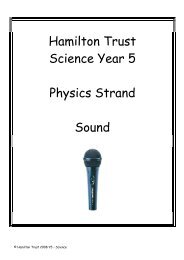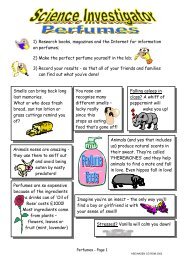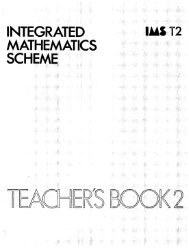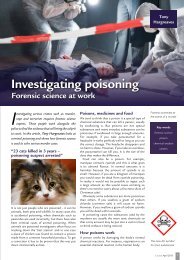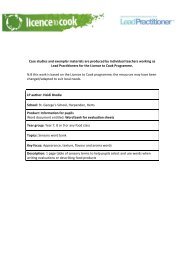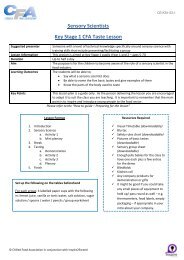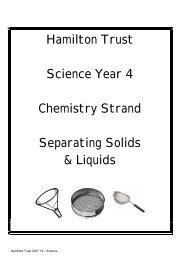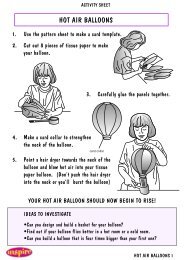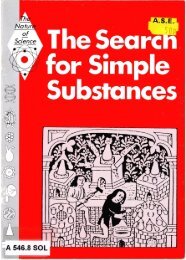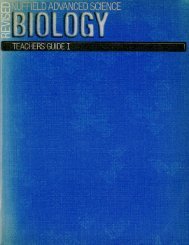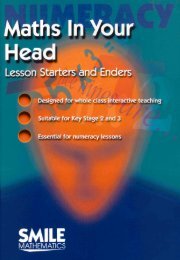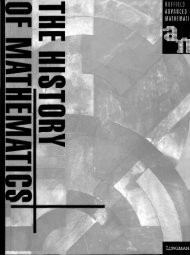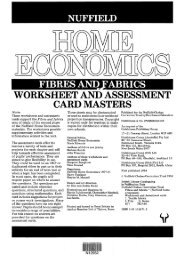UNESCO resource kit - science and technology educa...
UNESCO resource kit - science and technology educa...
UNESCO resource kit - science and technology educa...
Create successful ePaper yourself
Turn your PDF publications into a flip-book with our unique Google optimized e-Paper software.
____________ <strong>UNESCO</strong> Module 8: Managing water <strong>resource</strong>s - Teacher's Notes<br />
Managing water <strong>resource</strong>s -<br />
Teacher's Notes<br />
Introduction<br />
In this module, students are asked to:<br />
• estimate how much water they use each day;<br />
• suggest ways that they could reduce the amount they use;<br />
• compare the savings they could make with the estimated losses from leaking<br />
pipes;<br />
• consider competing claims on water <strong>resource</strong>s, present the case for a particular<br />
point of view <strong>and</strong> participate in reaching a balanced judgement;<br />
• compare the amounts of water used by people in different parts of the world;<br />
• consider likely problems in meeting the dem<strong>and</strong> for water during the next<br />
quarter century.<br />
Scientific & technological concepts<br />
• estimation;<br />
• projection.<br />
Teaching approaches<br />
This module is designed to help students appreciate just how much water they<br />
personally use <strong>and</strong> the problems there might be in meeting this dem<strong>and</strong> in<br />
different parts of the world or in the future. The first activity involves two<br />
different exercises in estimation <strong>and</strong> the second activity involves adopting the<br />
roles firstly of a particular user of water <strong>resource</strong>s <strong>and</strong> secondly of an impartial<br />
decision maker. Presented data is then used both to make comparisons <strong>and</strong> to<br />
anticipate possible future problems.<br />
Notes on the activities<br />
Pages I, 2: It might be worthwhile collecting together the individual results<br />
across a whole class in order both to ascertain the range of values <strong>and</strong> to obtain<br />
some average values.<br />
Pages 2, 3: Depending on what teachers know concerning the likely prior<br />
knowledge of their students, it might be helpful to provide each group with<br />
further background information on a briefing sheet. This should, where possible,<br />
relate to local circumstances but should not comprise a script for what the group<br />
presents in its report. It should, rather, provide the information from which,<br />
students can infer what the group they belong to would need to say. The<br />
information provided to different groups might, of course, partly overlap.<br />
In the final decision-making stage, it might be helpful for the teacher to chair the<br />
meeting.<br />
Page4: For the final part of Activity 4, students need an unmarked outline world<br />
map <strong>and</strong> an atlas for reference.<br />
Page 1


